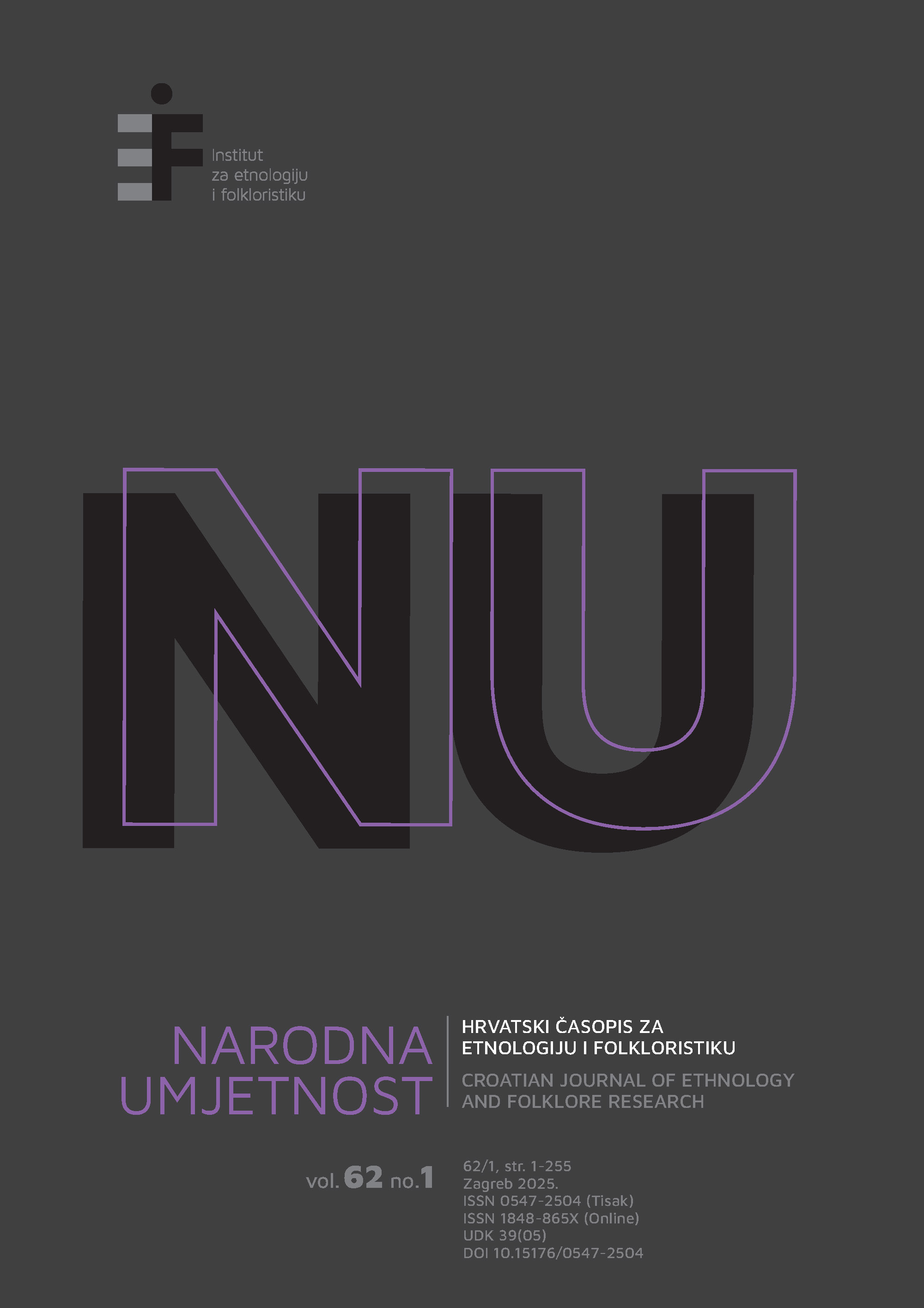Sensory Representationalism in the Anthropology of the Senses: A Case of Indian Aesthetics
Sažetak
This article offers a critique of representationalism in the anthropology of the senses by using the example of Indian aesthetic theory. Sensory representationalism is the view that sensory experiences are primarily understood as mental representations of the external world, often leading to a non-differentiation between the lived sensory experience and the mental image or concept of that experience. I will argue that sensory representationalism is strongly reflected in the views of Constance Classen and David Howes, key authors in the anthropology of the senses. Relying on existing discussions in the anthropology of the senses, insights into Indian aesthetics and my own fieldwork on the Gauḍīya Vaiṣṇava religious phenomenology, I will show how such an understanding is misleading and conflates phenomenal experience with its discursive mediation.
Ključne riječi: sensory representationalism, Indian aesthetics, rasa theory, anthropology of the senses
Preuzimanja
Objavljeno
Broj časopisa
Rubrika
Licenca

This work is licensed under a Kreativni Commons Attribution-NonCommercial-NoDerivatives 4.0 International License.

